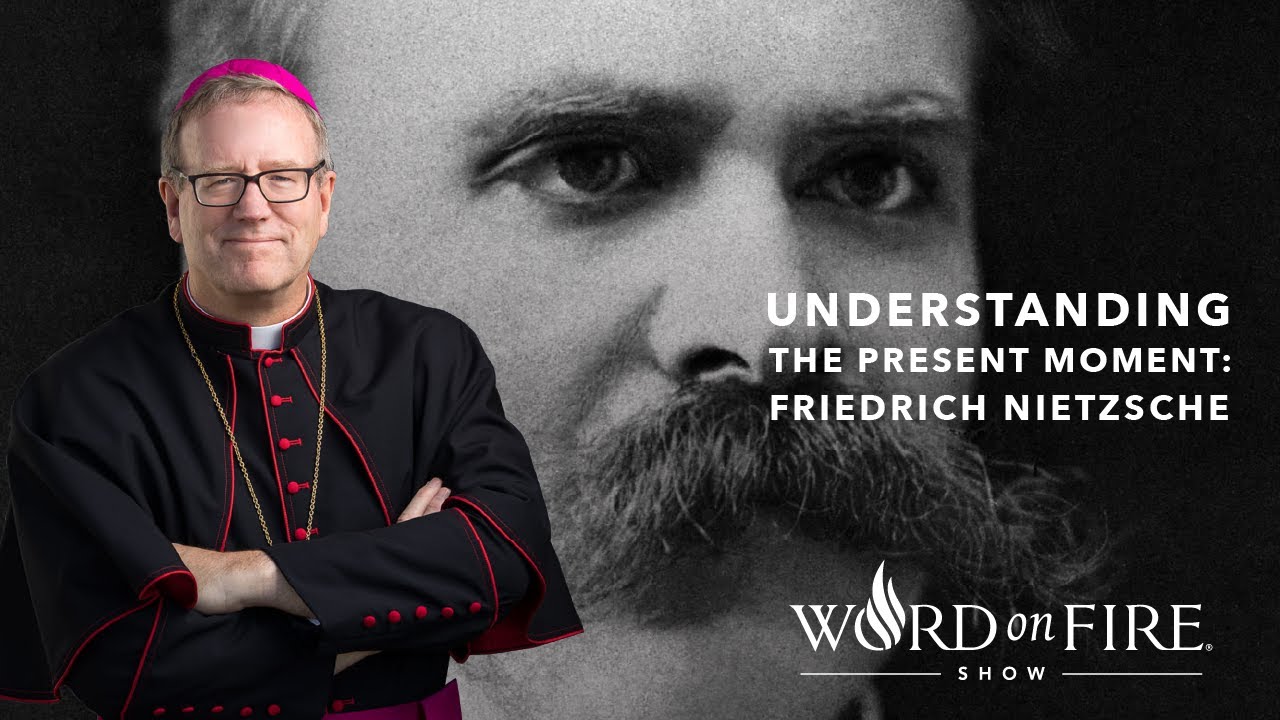Review Buku Zarathustra karya Nietzsche oleh Anas Kurniawan
Summary
TLDRIn this insightful video, the speaker discusses Friedrich Nietzsche's philosophical masterpiece *Thus Spoke Zarathustra*, exploring its deep themes of modernism, the death of God, and the nature of power. Drawing from personal reflections, the speaker highlights Zarathustra's journey of challenging societal norms and embracing individualism. The book’s profound lessons on self-overcoming, the rejection of conventional morality, and the pursuit of personal excellence are unpacked, making this an engaging review for philosophy enthusiasts. The speaker encourages viewers to engage with the book, offering a thoughtful analysis for those seeking deeper understanding.
Takeaways
- 😀 Zarathustra's book, written by Friedrich Nietzsche, explores the theme of humans killing gods, a metaphor for the rejection of traditional religious beliefs in modern society.
- 😀 Nietzsche's early life was marked by deep religious devotion, as he was the son of a Lutheran Christian priest, but he later became known for his controversial claim that 'God is dead.'
- 😀 The book, translated into Indonesian by HB Jassin, consists of around 540 pages and was released by Nasution Books in October 2019.
- 😀 Zarathustra descends from the mountains and confronts a crowd in the market, accusing them of killing gods, sparking rejection and anger from religious individuals.
- 😀 One of the central themes in the book is modernism, which Nietzsche critiques for prioritizing capital over human values, and its role in colonialism and exploitation of third-world countries.
- 😀 Zarathustra, after being rejected by the people, retreats to the forest where he befriends animals and eventually meets several characters seeking his wisdom.
- 😀 Throughout the book, Zarathustra offers philosophical insights, including the dangers of pity and the importance of self-overcoming and personal growth.
- 😀 The book includes reflections on how to arouse women's charm and beauty, as well as Nietzsche's poetry, which touches deeply on human consciousness.
- 😀 Nietzsche discusses the dangers of the desire for power, emphasizing the importance of controlling one's ambitions and not exploiting humanity.
- 😀 The narrative challenges readers to think critically about their own beliefs, modernity, and humanism, urging them to question long-held societal structures and ideals.
Q & A
What is the central theme of Friedrich Nietzsche's *Thus Spoke Zarathustra*?
-The central theme of the book is the 'death of God,' which Nietzsche explores through the character of Zarathustra, who confronts the idea that modern humanity has abandoned traditional religious beliefs, replacing them with materialism and modernity.
How does the reviewer describe Nietzsche’s background?
-The reviewer describes Nietzsche as a devout individual in his childhood, the son of a Lutheran Christian priest. Nietzsche later became a scholar of philology and religious texts, eventually rejecting conventional religious beliefs and declaring that 'God is dead.'
What role does Zarathustra play in the narrative?
-Zarathustra is the protagonist who, upon learning that humanity has killed God, retreats into the wilderness. He interacts with various characters and provides philosophical insights on topics such as power, self-control, and humanism, while struggling with humanity's rejection of his ideas.
What philosophical figure did Nietzsche study before developing his own ideas?
-Nietzsche studied the works of Arthur Schopenhauer, whose ideas greatly influenced his own philosophical outlook, particularly in relation to pessimism and the human condition.
What is the significance of Zarathustra’s retreat into nature?
-Zarathustra’s retreat into nature represents his search for deeper understanding and personal enlightenment away from society. The solitude allows him to connect with the natural world and find clarity about life’s meaning, away from the distractions and corruption of human civilization.
What does the reviewer say about the accessibility of Nietzsche's ideas in *Thus Spoke Zarathustra*?
-The reviewer notes that Nietzsche's work is profound and philosophical, but may be challenging for readers without a background in philosophy to fully understand. Some of the deeper themes and advice may be difficult to grasp without proper context or reflection.
How does Nietzsche critique modernism in the book?
-Nietzsche critiques modernism by associating it with the rise of capitalism and materialism, suggesting that modernity has led to the exploitation of third-world countries and undermined spiritual and moral values. This, he argues, is part of the process that leads to the death of God.
What advice does Zarathustra give regarding power and human desire?
-Zarathustra advises controlling one’s desire for power and not exploiting others. He emphasizes the importance of self-restraint and understanding that true wisdom comes not from dominating others, but from self-mastery and awareness of one’s limitations.
How does Zarathustra react to the people’s rejection of his message?
-Zarathustra is disappointed and frustrated by the rejection of his message. When the people in the market dismiss his claim that they have killed God, he withdraws back to the mountains, unwilling to pity humanity for its ignorance and denial.
What themes related to women and power are explored in the book?
-The book touches on themes related to the nature of women, including the beauty of women’s bodies and their societal role. Nietzsche also addresses the idea of power, warning against the falsehoods and evils of those who seek power over others, particularly through exploitation.
Outlines

This section is available to paid users only. Please upgrade to access this part.
Upgrade NowMindmap

This section is available to paid users only. Please upgrade to access this part.
Upgrade NowKeywords

This section is available to paid users only. Please upgrade to access this part.
Upgrade NowHighlights

This section is available to paid users only. Please upgrade to access this part.
Upgrade NowTranscripts

This section is available to paid users only. Please upgrade to access this part.
Upgrade NowBrowse More Related Video

Nietzsche Explained - Thus Spoke Zarathustra Summary - How To Read Nietzsche

Becoming Who You Really Are - The Philosophy of Friedrich Nietzsche

Why Nietzsche Hated Weak People

Nietzsche's Controversial Cure For Burnout

Understanding the Present Moment #2 (Friedrich Nietzsche)

Nietzsche - Follow No One, Trust Yourself
5.0 / 5 (0 votes)